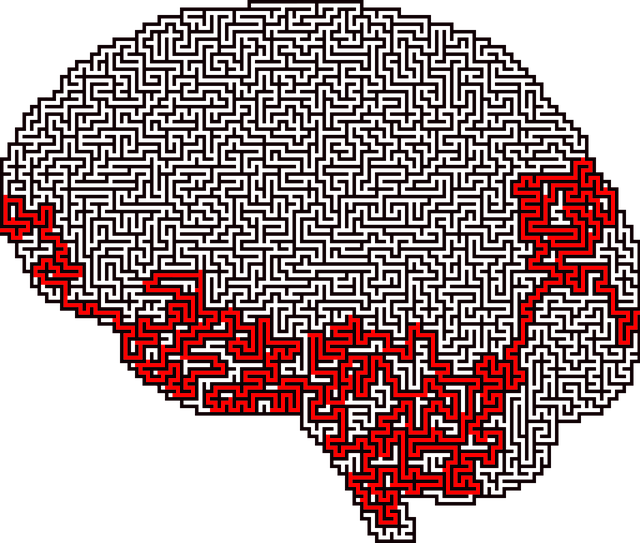Aurora Spiritual-Religious Issues Therapy navigates the intricate interplay between spiritual beliefs and mental health, requiring therapists to balance boundaries while fostering open dialogue. To manage risks effectively, professionals should integrate diverse strategies, including clear guidelines, self-care for practitioners, community outreach, continuous improvement through case study discussions, and regular stress management workshops. These practices enhance both professional well-being and the quality of care provided to clients with complex emotional needs.
In the realm of mental health, professionals encounter diverse challenges, with spiritual-religious issues therapy presenting unique risks. This article guides Aurora Spiritual-Religious Issues Therapy practitioners in developing robust risk management plans. We explore specific threats, from potential legal pitfalls to cultural sensitivities, offering strategies for proactive navigation. By implementing comprehensive risk mitigation tactics, therapists can enhance client safety and ensure ethical practice. Discover how continuous improvement ensures optimal care in this dynamic field.
- Understanding the Unique Risks in Spiritual-Religious Issues Therapy
- Crafting a Comprehensive Risk Management Plan
- Implementation and Continuous Improvement Strategies for Mental Health Professionals
Understanding the Unique Risks in Spiritual-Religious Issues Therapy

In the realm of mental health therapy, Aurora Spiritual-Religious Issues Therapy presents a unique set of risks and challenges. As professionals delve into this specialized area, they navigate complex territories where spiritual beliefs intertwine with psychological well-being. This niche practice demands a nuanced approach, recognizing that religious or spiritual doctrines can significantly impact an individual’s mental health journey. For instance, exploring faith-based coping skills development among patients with depression prevention as a core objective requires a delicate balance.
Understanding these risks is paramount for effective risk management. Therapists must be adept at distinguishing between personal beliefs and professional boundaries, fostering an environment that encourages open dialogue while maintaining ethical standards. By embracing positive thinking and promoting healthy coping mechanisms, mental health professionals can assist clients in harmonizing their spiritual-religious identities with evidence-based practices, ultimately enhancing the therapeutic experience and improving outcomes.
Crafting a Comprehensive Risk Management Plan

In crafting a comprehensive risk management plan for mental health professionals, especially those addressing Aurora spiritual-religious issues in therapy, it’s crucial to integrate diverse strategies that balance patient care with personal well-being. This involves not only establishing clear guidelines for managing potential risks within therapeutic settings but also prioritizing self-care practices among practitioners. By fostering a culture of self-awareness exercises and promoting open dialogue about stress management, mental health professionals can enhance their resilience and better serve their clients.
Furthermore, community outreach program implementation plays a significant role in mitigating risks associated with specialized therapy. Engaging with local communities to raise awareness about spiritual-religious issues and offering educational resources can reduce the stigma surrounding these topics. This collaborative approach not only enriches therapeutic practices but also strengthens the support network for both professionals and their clients, ensuring a safer, more inclusive environment for addressing complex emotional needs.
Implementation and Continuous Improvement Strategies for Mental Health Professionals

Mental health professionals must continuously refine their risk management strategies to provide safe and effective care. Implementation of robust systems should begin with a comprehensive assessment of existing protocols, identifying gaps and areas for improvement. This may involve collaborating with peers, seeking expert consultation from organizations like Aurora Spiritual-Religious Issues Therapy, and integrating lessons learned from the Mental Wellness Podcast Series Production. Regular staff meetings can be dedicated to discussing case studies and refining practices.
Continuous improvement is facilitated through ongoing monitoring of patient outcomes, service delivery, and staff well-being. Implementing Communication Strategies that encourage open dialogue about risks and concerns, coupled with regular Stress Management Workshops Organization, can foster a culture where professionals actively seek feedback and adapt their approaches. This iterative process ensures that risk management remains dynamic, responsive, and tailored to the evolving needs of both patients and practitioners.
Mental health professionals, especially those specializing in Aurora Spiritual-Religious Issues Therapy, must be proactive in managing risks. By understanding the unique challenges within this field, crafting a comprehensive risk management plan, and continuously improving practices, therapists can create a safe environment for both themselves and their clients. This ensures that they can effectively address sensitive issues while mitigating potential risks, ultimately fostering healthier therapeutic outcomes.














